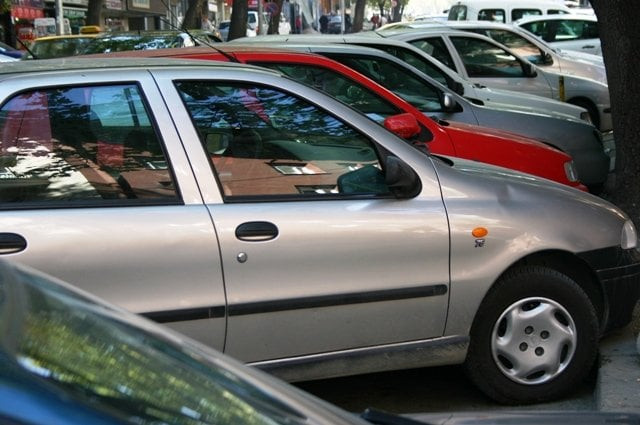Auto sector’s argument: Govt is uncompetitive, not the industry
Regulations, infrastructure that could benefit trade with India lacking.

Industrialists associated with the automobile sector fear that the industry will be paralysed in the absence of infrastructure and because of disparity between implementation of standards in different sectors of the two countries. PHOTO: FILE
Industrialists associated with the automobile sector fear that the industry will be paralysed in the absence of infrastructure and because of disparity between implementation of standards in different sectors of the two countries. This makes it impossible for the industry, which is not incompetent, to overcome the challenges of goods export to India, they say.

“The auto industry is ready for trade but a lot of homework on part of the government has yet to be done,” said Nabeel Hashmi, former chairman of Pakistan Association of Automotive Parts and Accessories Manufacturers (Paapam), told The Express Tribune.
“This is not a case where we cannot compete with our Indian counterparts, we are competing by manufacturing quality components for Suzuki and other car manufacturers,” he said.
According to Hashmi, India has agreed to accept emission and quality certificates issued by Pakistan Standards and Quality Control Authority (PSQCA) for vehicle export, but Delhi is following Bharat-IV emission standards, equivalent to Euro-IV, that entails that the vehicles should be designed especially for the Indian market.
Unfortunately, he said, Pakistan had not a single testing facility that could certify Euro emission standards while India had world-class facilities.
Hashmi pointed out that India had executed a well-planned and prudent policy, setting growth direction for the auto sector and addressing most of its concerns. A long-term consistent auto policy has been in place since 1995. The industrial policy in general and auto policy in particular are not tied to policies of sitting governments and continue without any major change decade after decade.
Indian automotive industry data for April-March 2011-12 shows production growth of 13.83% over previous year. In the year, the industry produced 20.36 million vehicles, of which two wheelers, passenger vehicles, three wheelers and commercial vehicles had a share of 76%, 15%, 4% and 4% respectively.
In contrast, he said, the Auto Industry Development Policy in Pakistan, formulated in 2007 to facilitate the industry, had been tinkered with so many times that it had lost its originality. It also led to 24% decline in sales of the industry during the period covered by the policy.
“All meetings of auto industry representatives with the Engineering Development Board and its parent – Ministry of Industries – on the new auto policy for 2012-17 have failed to reach consensus,” said Ishtiaq Siddiqi, Chief Executive Officer of AM Engineering.
The government continued to stick to its anti-industry proposal of a massive reduction in tariffs and was supporting trading over manufacturing despite the industries minister’s clear directives, he added.
Published in The Express Tribune, March 4th, 2014.
Like Business on Facebook, follow @TribuneBiz on Twitter to stay informed and join in the conversation.



















COMMENTS
Comments are moderated and generally will be posted if they are on-topic and not abusive.
For more information, please see our Comments FAQ